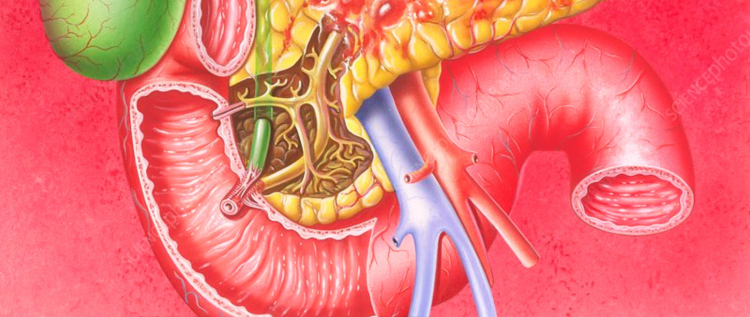
Pancreatitis is a condition characterized by inflammation of the pancreas, a vital organ located behind the stomach. This gland plays a crucial role in digestion and hormone regulation, producing enzymes that aid in digestion and hormones like insulin and glucagon that regulate blood sugar levels.
Causes:
- Gallstones: One of the most common causes, where gallstones block the pancreatic duct.
- Alcohol Abuse: Excessive alcohol consumption can trigger inflammation of the pancreas.
- Trauma: Injury to the abdomen or surgical complications can lead to pancreatitis.
- High Triglycerides: Elevated levels of blood fats can also cause pancreatitis.
- Infections: Viruses and other infections may contribute to the condition.
Symptoms:
- Upper Abdominal Pain: Intense pain that radiates to the back or chest.
- Nausea and Vomiting: Often severe and persistent.
- Fever and Rapid Pulse: Signs of inflammation and infection.
- Tender Abdomen: Touch sensitivity in the abdominal area.
- Jaundice: Yellowing of the skin and eyes in severe cases.
Diagnosis:
Diagnosis involves a combination of medical history, physical examination, and tests such as blood tests (to check for elevated enzyme levels), imaging studies (like ultrasound or CT scan), and sometimes endoscopic procedures.
Treatment:
- Hospitalization: Severe cases require hospitalization for pain management and supportive care.
- Fasting and Fluids: Giving the pancreas time to heal by restricting oral intake and providing intravenous fluids.
- Medications: Pain relievers, antibiotics (if infection is present), and enzyme supplements.
- Surgery: In cases of severe gallstone pancreatitis or complications, surgical intervention may be necessary.
Prevention:
- Moderate Alcohol Consumption: Limiting alcohol intake reduces the risk of pancreatitis.
- Healthy Diet: Eating a balanced diet low in fats and rich in fruits and vegetables helps prevent gallstones and high triglycerides.
- Prompt Treatment of Conditions: Managing conditions like high cholesterol or triglycerides promptly can reduce the risk.
Conclusion:
Pancreatitis can range from mild to life-threatening, depending on its severity and underlying causes. Early diagnosis and treatment are crucial for a successful recovery and to prevent complications. If you experience symptoms suggestive of pancreatitis, consult a healthcare professional promptly for proper evaluation and management.
For more personalized advice and management of pancreatitis, consult Dr. Ashish Kumar Jha, who specializes in gastrointestinal disorders and can provide expert guidance tailored to your needs.
